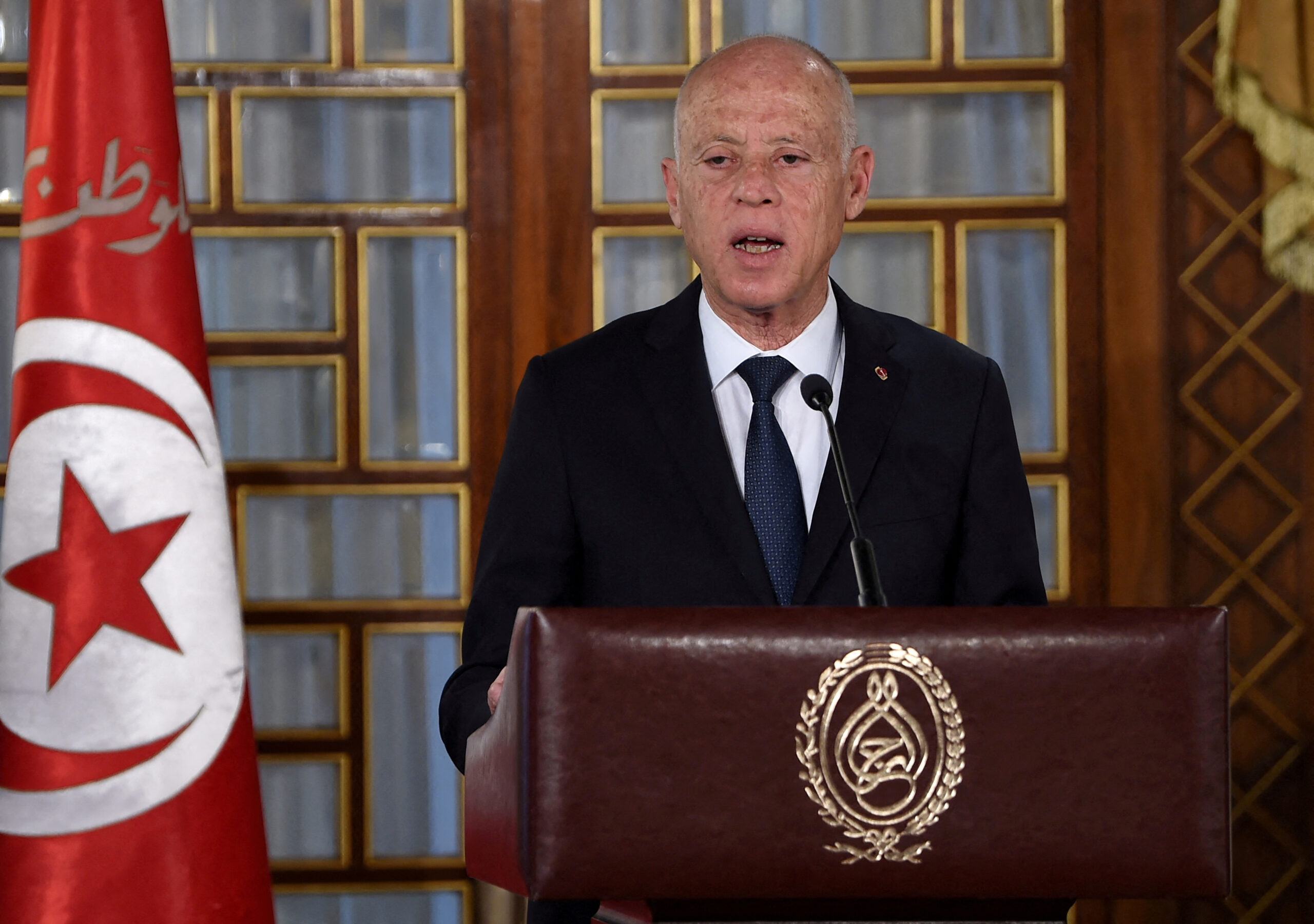
FILE PHOTO: Tunisia's President Kais Saied gives a speech at the government's swearing-in ceremony at the Carthage Palace outside the capital Tunis, Tunisia February 27, 2020. Fethi Belaid/Pool via REUTER
In an attempt to ease Tunisia’s prolonged political gridlock, the parliamentary “Soumoud” coalition on Monday unveiled a sweeping initiative aimed at restoring institutional balance and renewing public trust in governance.
The coalition, which unites several parties represented in the Assembly of People’s Representatives (ARP), announced the plan during a plenary session focused on higher education.
At the heart of the proposal is a call for a national political pact—one that envisions multi-party governance, expanded civil society engagement, and constitutional reforms to curtail the broad executive powers currently held by the presidency.
“The pact is designed to promote institutional stability and re-anchor citizens’ faith in the political process,” said one member of the coalition familiar with the text.
The initiative comes at a moment of deepening friction between Tunisia’s legislative and executive branches, most recently illustrated by the crisis engulfing Tunisair, the national airline.
The standoff over public sector management and presidential oversight has further eroded confidence in the ability of institutions to navigate the country’s pressing challenges.
Political analysts suggest the timing of the Soumoud coalition’s announcement is no coincidence.
With municipal elections slated for November 2025, the proposal may shift momentum and reconfigure Tunisia’s political calculus.
The coalition’s bid to reduce the powers of President Kaïs Saïed signals growing resistance within parliamentary circles to the centralization of authority since the 2021 constitutional changes.
So far, neither President Saïed nor the Tunisian government have officially responded to the coalition’s proposal.
However, observers note that the initiative may force the executive to reckon with mounting discontent over governance, transparency, and institutional independence.
As Tunisia grapples with economic strain, social unrest, and a fragmented political scene, the Soumoud pact offers what its proponents describe as “a route out of crisis”—one rooted in power-sharing, constitutional recalibration, and dialogue across all sectors of society.
Whether this appeal will translate into actionable reform remains to be seen.



